Production Officer
400+ Production Officer Interview Questions and Answers

Asked in Eternis Fine Chemicals

Q. what is distillation? types ? types of packing? elements of distillation column? optimum re-flux ratio ?
Distillation is a process of separating components of a mixture based on their boiling points. It has various types and elements.
Types of distillation include simple distillation, fractional distillation, and steam distillation.
Types of packing include structured packing and random packing.
Elements of a distillation column include a reboiler, a condenser, trays or packing, and a reflux drum.
Optimum reflux ratio is the ratio of the amount of liquid returned to the column to th...read more

Asked in UPL

Q. What is reflux ratio, and can you explain it?
Reflux ratio is the ratio of the amount of reflux to the amount of distillate in a distillation column.
Reflux ratio is an important parameter in distillation processes.
It is defined as the ratio of the amount of liquid returned to the column as reflux to the amount of liquid removed as distillate.
A high reflux ratio results in a higher purity of the distillate, but also requires more energy to maintain.
Reflux ratio can be adjusted to optimize the separation of a particular mi...read more
Production Officer Interview Questions and Answers for Freshers

Asked in Blue Circle Organics

Q. 1,Which glass use in GLR Reactor Type of reactor Which solvent use in company Which type of ssr use in industry Type of solvent and its boiling points Diffrence between sparcle filter and candle filter Types of...
read moreGLR Reactor glass, solvent, SSR, filter types and permits used in industry.
GLR Reactor uses borosilicate glass
Solvent used in the company depends on the process and can vary
SSR used in the industry can be of different types such as solid-state relay or single-shot rifle
Different solvents have different boiling points, for example, water boils at 100°C while ethanol boils at 78.37°C
Sparkle filter is used for coarse filtration while candle filter is used for fine filtration
Type...read more
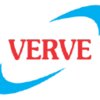
Asked in Verve Human Care Laboratories

Q. If your compression machine runs at 60 RPM, what will the output be in one hour?
The output in an hour can be calculated by multiplying the machine's RPM by the number of minutes in an hour.
To calculate the output in an hour, multiply the machine's RPM by 60 (the number of minutes in an hour).
For example, if the machine runs at 60 RPM, the output in an hour would be 60 x 60 = 3600 units.

Asked in Worley

Q. What equipment have you handled?
I have handled a variety of equipment in my role as a Production Officer.
Machinery and tools used in the production process
Quality control equipment such as calipers and gauges
Computer systems and software for data analysis and production planning
Safety equipment like personal protective gear and fire extinguishers
Material handling equipment such as forklifts and pallet jacks

Asked in Lupin

Q. 1) What is Distillation column 2) Chlorine Gas TLV limit 3) All Reactor Types and handling
Questions related to distillation column, chlorine gas TLV limit, and reactor types and handling.
Distillation column is a separation process used to purify or separate components of a mixture.
TLV limit for chlorine gas is 1 ppm (parts per million).
Reactor types include batch, continuous stirred tank, plug flow, and fluidized bed reactors. Handling involves proper safety measures and monitoring of reaction conditions.
Production Officer Jobs


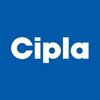
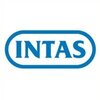
Asked in Intas Pharmaceuticals

Q. What actions should be taken when there is a power failure during filling operations?
During power failure in filling operations, the immediate action taken is to ensure safety, halt the filling process, and address any potential risks.
Ensure the safety of personnel and equipment
Halt the filling process to prevent any spills or accidents
Activate backup power sources or generators if available
Assess the cause of the power failure and take necessary steps to rectify it
Communicate the situation to relevant personnel and management
Implement contingency plans to mi...read more
Asked in Unicane Industries

Q. What enzymes are used in the production process, and what are their roles?
Enzymes play a crucial role in the production process. Some commonly used enzymes are amylase, protease, cellulase, and lipase.
Amylase is used to break down starch into simple sugars.
Protease is used to break down proteins into amino acids.
Cellulase is used to break down cellulose into glucose.
Lipase is used to break down fats into fatty acids and glycerol.
Enzymes are used in various industries such as food, pharmaceuticals, and textiles.
Share interview questions and help millions of jobseekers 🌟


Asked in Meyer Organics

Q. Tablet and Capsule which size and parameters
Tablet and capsule sizes and parameters vary depending on the specific medication and dosage form.
Tablets can range in size from small, such as 4mm in diameter, to large, such as 25mm in diameter.
Capsules can come in different sizes, such as size 0, size 1, size 2, etc.
Parameters for tablets and capsules include weight, shape, color, and markings.
For example, a tablet may weigh 500mg, have a round shape, be white in color, and have a specific imprint code for identification.
C...read more

Asked in Parle Products

Q. Which raw materials are used in biscuit preparation?
The raw materials used in biscuit preparation include flour, sugar, butter, eggs, and flavorings.
Flour is the main ingredient in biscuits, providing structure and texture.
Sugar adds sweetness and helps with browning.
Butter or margarine adds richness and flavor.
Eggs act as a binding agent and contribute to the texture.
Flavorings such as vanilla extract or spices enhance the taste.

Asked in Alembic Pharmaceuticals

Q. What are the steps in the manufacturing process of a semi-finished product?
The manufacturing process of semi-finished products involves several steps including casting, rolling, forging, and machining.
The process starts with melting the raw material in a furnace.
The molten metal is then poured into a mold to create the desired shape.
The semi-finished product is then subjected to rolling, forging, or extrusion to improve its mechanical properties.
After that, the product is machined to achieve the final shape and size.
Quality control checks are perfor...read more

Asked in Inventys Research

Q. What is pump ? Types of pump, how it works
A pump is a mechanical device used to move fluids from one place to another. There are various types of pumps.
Types of pumps include centrifugal pumps, positive displacement pumps, and axial flow pumps.
Centrifugal pumps work by converting rotational energy from a motor into kinetic energy in the fluid being pumped.
Positive displacement pumps work by trapping a fixed amount of fluid and then forcing it into the discharge pipe.
Axial flow pumps work by using propellers or impell...read more

Asked in Lincoln Pharmaceuticals

Q. What are bulk density, tapped density, and compressibility index?
Bulk density is the mass of a powder per unit volume, while tapped density is the mass of a powder per unit volume after tapping. Compressibility index is a measure of the powder's ability to be compressed.
Bulk density is determined by measuring the mass of a known volume of powder.
Tapped density is determined by measuring the mass of a known volume of powder after tapping it a specified number of times.
Compressibility index is calculated by subtracting the tapped density fro...read more

Asked in UPL

Q. What is the difference between organic chemistry and inorganic chemistry?
Organic chemistry deals with carbon-based compounds while inorganic chemistry deals with non-carbon-based compounds.
Organic chemistry involves the study of hydrocarbons, alcohols, carbohydrates, proteins, and nucleic acids.
Inorganic chemistry involves the study of metals, minerals, and non-carbon-based compounds like water, salts, and acids.
Organic compounds are generally covalently bonded while inorganic compounds can be ionic or covalently bonded.
Organic compounds are often...read more
Asked in Unicane Industries

Q. What is the difference between RO water and process water?
RO water is purified water while process water is used in industrial processes.
RO water is purified through reverse osmosis process which removes impurities and minerals.
Process water is used in industrial processes such as cooling, heating, and cleaning.
RO water is safe for drinking while process water is not.
RO water has a low conductivity level while process water has a high conductivity level.
RO water is used in households while process water is used in industries.

Asked in Sintex-bapl

Q. How would you systematically achieve the target?
Yes, by motivating, training, and supporting the team to achieve set goals systematically.
Set clear and achievable targets for the team
Provide regular feedback and guidance to team members
Implement performance tracking systems to monitor progress
Offer training and development opportunities to enhance skills
Encourage teamwork and collaboration among team members


Q. What is tablet ,types of tablet ,defects of tablet,what is coating,types of coating
Tablets are solid dosage forms of medication. There are different types of tablets, common defects, and various coating options.
Tablets are solid dosage forms made by compressing active pharmaceutical ingredients with excipients.
Types of tablets include immediate-release, extended-release, chewable, effervescent, and sublingual.
Common defects of tablets include capping, lamination, sticking, and chipping.
Coating is a process where a thin layer is applied to tablets for protec...read more

Asked in Pidilite Industries

Q. What are the safety precautions at your plant?
Safety precautions at our plant include regular safety training, use of personal protective equipment, and implementation of safety protocols.
Regular safety training for all employees
Use of personal protective equipment such as hard hats, safety glasses, and gloves
Implementation of safety protocols such as lockout/tagout procedures and emergency response plans
Regular safety inspections and audits to identify and address potential hazards
Encouraging employees to report any saf...read more

Asked in Hetero

Q. What is the chemical formula of paracetamol?
The chemical formula of paracetamol is C8H9NO2.
Paracetamol is also known as acetaminophen.
Its chemical name is N-(4-hydroxyphenyl)acetamide.
The molecular weight of paracetamol is 151.16 g/mol.
It is a white, crystalline powder that is sparingly soluble in water.

Asked in Accenture

Q. What is the difference between an incident and a deviation?
Incidents are unexpected events that have already occurred, while deviations are potential issues that could lead to incidents if not addressed.
Incidents are actual events that have happened, while deviations are potential issues that could lead to incidents if not corrected.
Incidents are reactive in nature, while deviations are proactive as they are identified before they escalate into incidents.
Examples of incidents include equipment breakdowns, accidents, or quality issues...read more

Asked in Pure & Cure Healthcare

Q. How will you handle faulty AWC in the Compression area?
To handle faulty AWC in Compression area, I would follow a systematic approach to identify and resolve the issue.
First, I would conduct a thorough inspection of the AWC to determine the nature and extent of the fault.
Next, I would consult the equipment manual or seek guidance from senior production officers to understand the troubleshooting steps specific to the AWC model.
If the issue is minor, such as a loose connection or a faulty sensor, I would attempt to rectify it mysel...read more
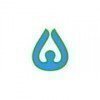
Asked in Indian Immunologicals

Q. What is sterility and what are the different types of sterilization?
Sterility refers to the absence of viable microorganisms, and sterilization is the process of eliminating all forms of life from a surface, object, or substance.
Sterility is the state of being free from living microorganisms.
Sterilization is the process of killing or removing all forms of life, including bacteria, viruses, fungi, and spores.
There are different types of sterilization methods, including heat sterilization, chemical sterilization, radiation sterilization, and fi...read more

Asked in Medicef Pharma

Q. How will you handle induction sealing problems in a dry syrup machine?
I will troubleshoot the induction sealing problem by identifying the root cause and implementing corrective actions.
Check the induction sealing machine for any mechanical issues
Ensure that the sealing head is properly aligned with the bottle cap
Verify that the correct sealing parameters are set on the machine
Inspect the sealing material for any defects or inconsistencies
Train operators on proper machine operation and maintenance
Implement a preventive maintenance program to av...read more

Asked in Astec LifeSciences

Q. what is MSGL Reactor, ANFD, Atmospheric Distillation and vaccum Distillation, Herbicide and intermediate Product, Chlorination
MSGL Reactor, ANFD, Atmospheric and Vacuum Distillation, Herbicide and Intermediate Product, Chlorination are all related to chemical production processes.
MSGL Reactor is a type of reactor used in chemical production.
ANFD stands for Agitated Nutsche Filter Dryer, which is used for filtration and drying of chemical products.
Atmospheric Distillation is a process used to separate crude oil into different components based on their boiling points.
Vacuum Distillation is a similar p...read more

Asked in J B Chemicals And Pharmaceuticals

Q. 1.Introducing yourself 2.Types of Pump 3.What is Exothermic Reaction 4.Curret Role
I am a Production Officer with knowledge of different types of pumps, exothermic reactions, and current role.
I have experience working with centrifugal, positive displacement, and axial flow pumps.
Exothermic reactions are chemical reactions that release energy in the form of heat, light, or sound. Examples include combustion and oxidation.
My current role involves overseeing the production process, ensuring quality control, and managing a team of workers.
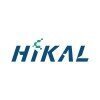
Asked in Hikal

Q. What is fire,solvent flash point and how to prevent fire?
Fire and solvent flash point are important safety concerns in production. Prevention measures include proper storage and handling.
Fire is a chemical reaction that requires heat, fuel, and oxygen. Solvents have a flash point, which is the temperature at which they can ignite.
Prevention measures include proper storage and handling of flammable materials, regular maintenance of equipment, and having fire extinguishers and alarms readily available.
Examples of prevention measures ...read more
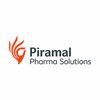
Asked in Piramal Pharma

Q. What is a change control system? Explain the systematic process used to manage and control modifications to processes, equipment, facilities, documentation, and personnel.
A change control system manages modifications to processes, equipment, and documentation to ensure consistency and compliance.
Ensures all changes are documented and approved before implementation.
Minimizes risks associated with changes, such as errors or non-compliance.
Involves stakeholders in the change process for better communication.
Example: In a manufacturing setting, changing a production line layout requires a formal review and approval.
Includes tracking changes to mai...read more

Asked in Exemed Pharmaceuticals

Q. What is vacuum and what is the vacuum range?
Vacuum is a space devoid of matter. Vacuum range refers to the pressure range at which a vacuum is maintained.
Vacuum is a state of low pressure where there is no matter or gas present.
It is created by removing air or other gases from a sealed container or space.
Vacuum range is the pressure range at which a vacuum is maintained, typically measured in units like torr or pascal.
Different vacuum ranges have different applications, such as high vacuum for scientific experiments or...read more
Asked in New Meena Bazar

Q. How do you control your work efficiency, job work time, and accuracy?
To control work efficiency, job time, and accuracy, one must prioritize tasks, set goals, use time management techniques, and regularly assess performance.
Prioritize tasks based on importance and deadlines to ensure timely completion.
Set specific, achievable goals for each task to maintain focus and motivation.
Use time management techniques such as creating to-do lists, setting deadlines, and minimizing distractions.
Regularly assess performance by tracking progress, identifyi...read more

Asked in Lark Laboratories (I)

Q. How many pressure is release opening a door of any section.
The question is not clear and requires more information.
The question needs clarification on which type of door and section is being referred to.
The pressure required to open a door can vary depending on the size and weight of the door.
It is important to consider the safety regulations and standards for pressure release in a production facility.
Without more information, it is difficult to provide a specific answer to this question.
Interview Questions of Similar Designations
Interview Experiences of Popular Companies




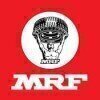

Calculate your in-hand salary
Confused about how your in-hand salary is calculated? Enter your annual salary (CTC) and get your in-hand salary


Reviews
Interviews
Salaries
Users










